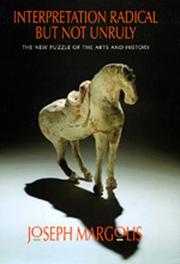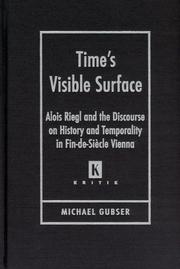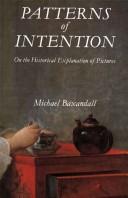Book
ISBN: 9789004459700 9789004459625 9004459626 Year: 2021 Publisher: Leiden Brill Rodopi
Abstract | Keywords | Export | Availability | Bookmark
 Loading...
Loading...Choose an application
- Reference Manager
- EndNote
- RefWorks (Direct export to RefWorks)
Dans Les écritures de l'image par Jean-Philippe Toussaint Claire Olivier s'intéresse à la manière dont l'écrivain, cinéaste, photographe et plasticien Jean-Philippe Toussaint, expérimente la puissance des images pour composer en ce début du XXIe siècle une œuvre singulière fondée sur des relations transesthétiques. Elle s'attache à montrer que les écritures toussaintiennes, quel que soit le médium choisi, sont visuelles. Elles donnent à voir, à penser, à rêver et composent un « essai-image ». Ce dernier constitue une forme toujours en devenir qui s'appuie sur un processus de « sémentation », néologisme qui désigne une véritable alchimie du signe où le sens est continuellement réactivé par des contextualisations différentes. Sur le mode de l'opera operta, cet « essai-image » toussaintien déploie ses séductions réflexives comme romanesques. In Les écritures de l'image par Jean-Philippe Toussaint , Claire Olivier is concerned with the way the writer, filmmaker, photographer and plastic artist Jean-Philippe Toussaint experiments with the power of images to create, in the 21st century, a singular work based on transaesthetic relationships. She endeavours to demonstrate that toussaintian writings are visual, independently from the chosen medium. They allow to see, think, dream and compose an "image-essay". The latter forms a shape always in the making, relying on a "sémentation" process, neologism designating a true sign alchemy where the meaning is constantly revived through different contextualisations. On the model of the opera operta, this toussaintian "image-essay" deploys its reflective seductions as novelistic.
Art and history --- History and art --- History --- History in art --- Toussaint, Jean-Philippe --- Toussaint, Jean-Philippe, 1957-.... --- Illustrations
Book
ISBN: 1438469500 9781438469508 9781438469485 Year: 2018 Publisher: Albany
Abstract | Keywords | Export | Availability | Bookmark
 Loading...
Loading...Choose an application
- Reference Manager
- EndNote
- RefWorks (Direct export to RefWorks)
"This book recounts a fascinating tale of the mystery of the Albany mummies from their early acquisition in 1909, to their beloved status as Albany's Egyptian priest and priestess in the mid-twentieth century, to the present, when their mystery was solved through the intersection of historical scholarship and science and technology. Key to this story was the planning and installation of a major exhibition called GE Presents: The Mystery of the Albany Mummies, organized by the Albany Institute of History & Art and on view from September 21, 2013 until June 6, 2014"--Foreword. "The story of the Albany mummies centers on two ancient Egyptian mummies and their coffins, one dating from the 21st Dynasty and the other from the Ptolemaic Period. In 1909, the mummies and coffin bottoms were purchased from the Cairo Museum by Albany Institute board member Samuel Brown, a purveyor of coffees, teas, and spices in Albany"--Albany Institute website.
Mummies --- Mummy cases --- Egyptology --- Exhibitions --- History. --- Albany Institute of History and Art --- Egypt --- Kings and rulers --- Antiquities.

ISBN: 0520915143 0585098964 9780520915145 9780585098968 9780520087699 0520087690 0520087690 Year: 1995 Publisher: Berkeley
Abstract | Keywords | Export | Availability | Bookmark
 Loading...
Loading...Choose an application
- Reference Manager
- EndNote
- RefWorks (Direct export to RefWorks)
With this challenging work, Joseph Margolis continues the project begun in The Flux of History and the Flux of Science (California, 1993). Tackling one of philosophy's master themes, he develops the controversial thesis that the world is a flux. Here he applies this doctrine to Western theories of history and the interpretation of cultural phenomena--offering the first sustained analysis of the logic, methodology, and metaphysics of interpretation committed to a thoroughgoing relativism and the historicized structure of cultural phenomena. Versed in Anglo-American and Continental philosophy, Margolis draws on the best views of Western philosophy to investigate a topic regularly ignored in that tradition. The result is the surprising synthesis of two historically antipathetic approaches to philosophy.
History --- Art and history. --- Art and history --- History & Archaeology --- History - General --- Philosophy. --- Philosophy --- History and art --- History, Modern --- History in art

ISBN: 9780814332085 0814332080 Year: 2006 Publisher: Detroit, Michigan Wayne State University Press
Abstract | Keywords | Export | Availability | Bookmark
 Loading...
Loading...Choose an application
- Reference Manager
- EndNote
- RefWorks (Direct export to RefWorks)
Aesthetics, Austrian --- Art and history --- Art --- Space and time in art --- History and art --- History --- History in art --- Austrian aesthetics --- Historiography --- Riegl, Alois --- Riegel, Alois, --- Criticism and interpretation.

ISBN: 0814337465 9780814337462 0814332080 9780814332085 Year: 2006 Publisher: Detroit : Wayne State University Press,
Abstract | Keywords | Export | Availability | Bookmark
 Loading...
Loading...Choose an application
- Reference Manager
- EndNote
- RefWorks (Direct export to RefWorks)
By expanding our understanding of Riegl and his intellectual context, Time's Visible Surface demonstrates that Riegl is a pivotal figure in cultural theory and that fin-de-siècle Vienna holds continued relevance for today's cultural and philosophical debates.
Aesthetics, Austrian --- Space and time in art. --- Art and history. --- Art --- Austrian aesthetics --- History and art --- History --- History in art --- Historiography. --- Riegl, Alois, --- Criticism and interpretation. --- Riegel, Alois,
Book
ISBN: 0773587985 9780773587984 0773541047 9780773541047 9780773540996 0773540997 0773587993 Year: 2012 Publisher: Montreal
Abstract | Keywords | Export | Availability | Bookmark
 Loading...
Loading...Choose an application
- Reference Manager
- EndNote
- RefWorks (Direct export to RefWorks)
In The Science of Culture and the Phenomenology of Styles, Renato Barilli examines the history of artistic style in relation to scientific discovery. Applying an innovative analysis, he illustrates the subtle, yet intrinsic, connection between paradigm shifts in the sciences and in the arts. Barilli argues that there are "homologies," or equivalences, between specific discoveries or inventions and revolutionary advances in artistic techniques. He draws upon the pioneering work of Lucien Goldman, who provides the fundamental definition of "homology," as well as the theories of Luciano Anceschi and Marshall McLuhan in order to reassess conventional modes of dividing art history into such periods as modern, contemporary, and postmodern. By correlating moments like the invention of the printing press and the internal combustion engine with canonical periods in the evolution of art, Barilli unearths conceptual links across domains and disciplines. An insightful reflection on the historic perspectives of cultural production, The Science of Culture and the Phenomenology of Styles sheds new light on the relationship between visual culture, art, and language.
Art and society. --- Art and history. --- History and art --- History --- History in art --- Art --- Art and sociology --- Society and art --- Sociology and art --- Social aspects
Book
ISBN: 9780520285279 0520285271 0520285271 Year: 2015 Publisher: Oakland University of California Press
Abstract | Keywords | Export | Availability | Bookmark
 Loading...
Loading...Choose an application
- Reference Manager
- EndNote
- RefWorks (Direct export to RefWorks)
"The compulsion to dwell on history--on how it is recorded, stored, saved, forgotten, narrated, lost, remembered, and made public--has been at the heart of artists' engagement with the photographic medium since the late 1960s. Uncertain Histories considers some of that work, ranging from installations that incorporate vast numbers of personal and vernacular photographs by Christian Boltanski, Dinh Q. Lê, and Gerhard Richter to confrontations with absence in the work of Joel Sternfeld and Ken Gonzales-Day. Projects such as these revolve around a photographic paradox that hinges equally on knowing and not knowing, on definitive proof coupled with uncertainty, on abundance of imagery being met squarely with its own inadequacy. Photography is seen as a fundamentally ambiguous medium that can be evocative of the historical past while at the same time limited in the stories it can convey. Rather than proclaiming definitively what photography is, the work discussed here posits photographs as objects always held in suspension, perpetually oscillating in their ability to tell history. Yet this ultimately leads to a new kind of knowledge production: uncertainty is not a dead end but a generative space for the viewer's engagement with the construction of history"--Provided by publisher.
Photographic criticism --- Photography, Artistic --- Art and history --- History in art --- Historical art --- History and art --- History --- Artistic photography --- Photography --- Photography, Pictorial --- Pictorial photography --- Art --- Photography criticism --- Criticism --- Aesthetics
Book
ISBN: 9789004440845 9789004443556 Year: 2021 Publisher: Leiden Brill Rodopi
Abstract | Keywords | Export | Availability | Bookmark
 Loading...
Loading...Choose an application
- Reference Manager
- EndNote
- RefWorks (Direct export to RefWorks)
Refresh the Book contains reflections on the multimodal nature of the book, focusing on its changing perception, functions, forms, and potential in the digital age. Offering an overview of key concepts and approaches, such as liberature, technotexts, and bookishness, this volume of essays addresses the specificity of the printed book as a complex cultural phenomenon. It discusses diverse forms of representation and expression, both in literary and non-literary texts, as well as in artist's books. Of special interest are these aspects of the book which resist remediation into the digital form. Finally, the volume contains an extensive section devoted to artistic practice as research, discussing the book as the synthesis of the arts, and site for performative aesthetic activity.
Graphics industry --- Art and history --- History and art --- History --- History in art --- Artists' books --- Books --- Book design --- Publishers and publishing --- Technological innovations.
Book
ISBN: 0271085304 0271083565 9780271085302 Year: 2020 Publisher: University Park Penn State University Press
Abstract | Keywords | Export | Availability | Bookmark
 Loading...
Loading...Choose an application
- Reference Manager
- EndNote
- RefWorks (Direct export to RefWorks)
"Demonstrates the crucial role that art-writing played as a tool of historical analysis in the work of the Romantic historian Jules Michelet's work, decisively influencing his most important historical concepts, his idea of history, and his view of the practice of the historian"--
Art and history --- Historiography --- History --- Michelet, Jules, --- Historical criticism --- Authorship --- History and art --- History in art --- Criticism --- Mishle, Zhi︠u︡lʹ, --- Michelet, J., --- Michelet,

ISBN: 0300034652 9780300034653 0300037635 9780300037630 Year: 1985 Publisher: New Haven Yale University
Abstract | Keywords | Export | Availability | Bookmark
 Loading...
Loading...Choose an application
- Reference Manager
- EndNote
- RefWorks (Direct export to RefWorks)
Painting --- -Oil painting --- Painting, Primitive --- Paintings --- Graphic arts --- Expertising --- Painting. --- Bildbetrachtung. --- Kunst. --- Geschichte. --- -Expertising --- Art and history --- History and art --- -Psychology --- -History and art --- Painters --- History --- History in art --- Psychology --- CDL --- 75.01 --- Art and history. --- Peinture --- Art et histoire. --- Peintres --- Expertising. --- Psychology. --- Expertise. --- Psychologie. --- Interpretation

 Search
Search Feedback
Feedback About UniCat
About UniCat  Help
Help News
News